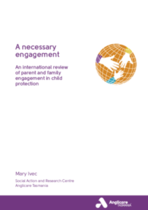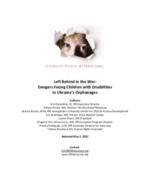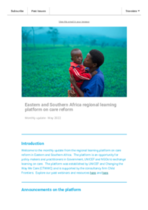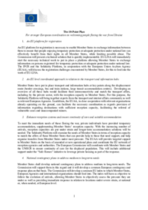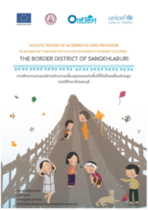A Necessary Engagement: An International Review of Parent and Family Engagement in Child Protection
This report provides a review of international and national models of engagement, support and advocacy for parents who have contact with child protection systems. How statutory child protection systems engage with parents ultimately affects the outcomes for children, including safety, permanency and wellbeing. While social work practices that emphasise people’s self-determination and strengths are recognised as fundamental to eliciting change in parents when care standards have faltered, there is widespread acknowledgment of the struggle child protection authorities have to meaningfully engage parents and families.

